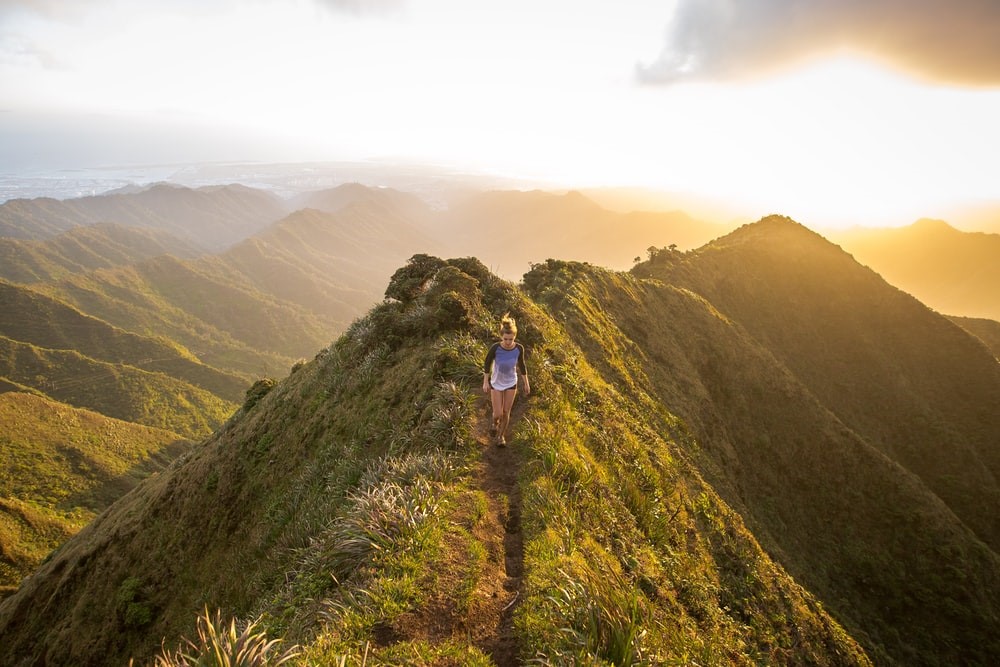Thank you to my good friend and colleague, Dr. Tracy Weyer, for inspiring this post.
According to the US Environmental Protection Agency in 2020, Americans spend about 90% of their lives indoors.
After the shelter-in-place orders were instituted, we saw more and more people venturing into the only places left to go—the outdoors.
Perhaps one benefit of the pandemic is that it helped some people reconnect to nature in a way that was urgently needed in our culture.
The Big Idea—Many people suffer significant negative effects from lack of time in nature. Research shows that increasing time outside can improve your health and work performance—and it’s great for your children.
Love for nature
My love for backpacking began in college, and it has only grown stronger with age.
For me, there is almost nothing that compares to those first steps away from my car in a place like Yosemite, Grand Tetons, or Patagonia—knowing that I won’t return for several days.
I won’t have cell service, I won’t be checking email, and my only agenda each day will be to put one foot in front of the next while being present to the breathtaking surroundings.
Every summer for the last 20 years it has been a priority to schedule several backpacking trips.
And I have noticed something interesting about my trips into the wilderness. With every step, I feel the weight of my week or my year slowing being shed from my shoulders. My body becomes less tense. My mind rediscovers the ability to wander—something we have almost entirely lost in the modern world—to our detriment.
On every trip, we make it a priority to take a plunge into freezing water, sit by a campfire, or stare silently at the stars.
I come back feeling like my soul has been in detox. The stress has been wrung out—purged.
It’s as if my entire nervous system has been crying out for this break all year long.
Even for my family, it seems like sometimes the only solution for a fussy baby or restless toddler is to go outside.
It has led to a Houston family mantra of sorts—Just add outside. Even my dog is happier.
And there is a large body of research to support the notion that time in nature has incredible benefits for our physical, emotional, and spiritual health—and even improves work productivity and performance.
Benefits and research
Human history was born in the wild—but modern gadgets like smartphones or movie streaming have made it even more challenging for many people to take that first step outside.
With most devices today, we have an infinite amount of things we could watch or explore.
Time disappears when we stare into the black hole of our devices.
In 2005, author and journalist Richard Louv coined the term “nature-deficit disorder’ to describe his investigation into the effects of too much indoor time on children.
Louv proposed that a host of social ailments might be soothed by increasing time outside. Things like anxiety, addiction, obesity, depression, and many other problems—might all be improved by more time in nature.
It is important to note that nature-deficit disorder is not formally recognized by any diagnostic mental health manual.
However, without too much of a leap, most of us can see the tremendous benefits of spending more of our time outside.
The school system in Finland has been widely recognized as one of the best in the world. One noteworthy part of their early education system—15 minutes outside every hour.
Here are some potential benefits that have been linked to more time outdoors:
- Lower stress hormones
- Lower blood pressure
- Decreased anxiety
- Improved mood
- Weight loss (when active)
- Sunlight to regulate sleep-wake cycles
- Sunlight also increases Vitamin D levels which can improve mood and immune functioning
- Improved creative thinking
- Improved productivity
Time in nature has also been linked to better problem solving, concentration, and improved focus—all of which improve work performance and productivity.
A 2008 study done by researchers at the University of Michigan showed that taking a short walk in nature boosted concentration and memory by 20%. Link at bottom.
Another 2015 study by Stanford showed that a 90-minute nature walk reduced rumination on negative thoughts. I don’t know about you, but I could certainly benefit from ruminating less.
It’s no surprise that some of history’s greatest minds like Emmerson, Thoreau, Newton, and Einstein—all credited their time in nature as a huge contributor in their insights.
Great spiritual teachers like Jesus or Buddha demonstrated that time in the wilderness was vital to heart and spirit.
A fascinating and sad 2013 article published in The Atlantic entitled—When Trees Die, People Die—showed a connection between a lack of trees in neighborhoods and an increase in heart disease and respiratory infections.
Research also suggests that time spent near water—or submerged in it—is tremendously healing. I vividly remember one backpacking trip in Paradise Valley at Kings Canyon National Park getting blasted in the face by Mist Falls.
Clearly, the benefits of spending more time outside are something we desperately need more of.
“Look deep into nature, and then you will understand everything better.” –Albert Einstein
This seems to have worked out well for Einstein—why not give it a try?
Turn information into action
- Make a list of new places to explore outside. A reminder to observe physical distancing and county guidelines. Take notice of the effects on yourself and your family. With so many places probably closed this summer, it’s a great excuse to lead your family back outdoors again.
- Take a nightly 15-minute walk around the block. Even small efforts to get outside can be very rewarding. Skip Netflix and go for a quick stroll.
- Get some early and late day sunlight. This can boost Vitamin D which helps depression and your immune system. It also helps regulate your sleep.
- Go find water. Whether you can get to a lake, a river, or the ocean—make it a priority to spend regular time around bodies of water. Better yet, go for an invigorating swim.
- Mindful walking. My family has been doing some great spring walks. Slowing down to listen to the crickets, watch the butterflies, or notice new wildflowers is incredibly calming. There is nothing that brings me into the present like nature.
- Schedule regular outdoor breaks during your workday. This is a proven way to improve your creative thinking and focus. When you return to your project, you will get more done—faster.
Have a great weekend!
Parker
Suggested Resources
- Nature walks reduce negative rumination (Stanford 2015) https://www.pnas.org/content/112/28/8567
- Americans spend 90% of time indoors https://www.epa.gov/report-environment/indoor-air-quality
- The cognitive benefits of interacting with nature (University of Michigan 2008) https://journals.sagepub.com/doi/10.1111/j.1467-9280.2008.02225.x





Thank you for this nice reminder Parker. I too notice that I feel better when I get outside and have no service to my cell phone and other things that keep me out of being “present” in the world around me. Blessings.